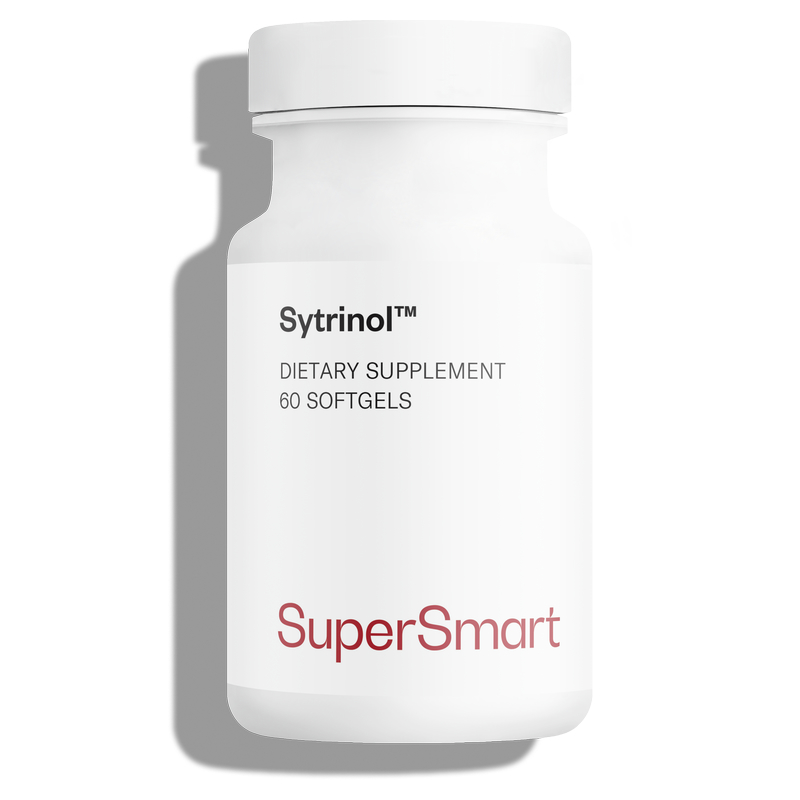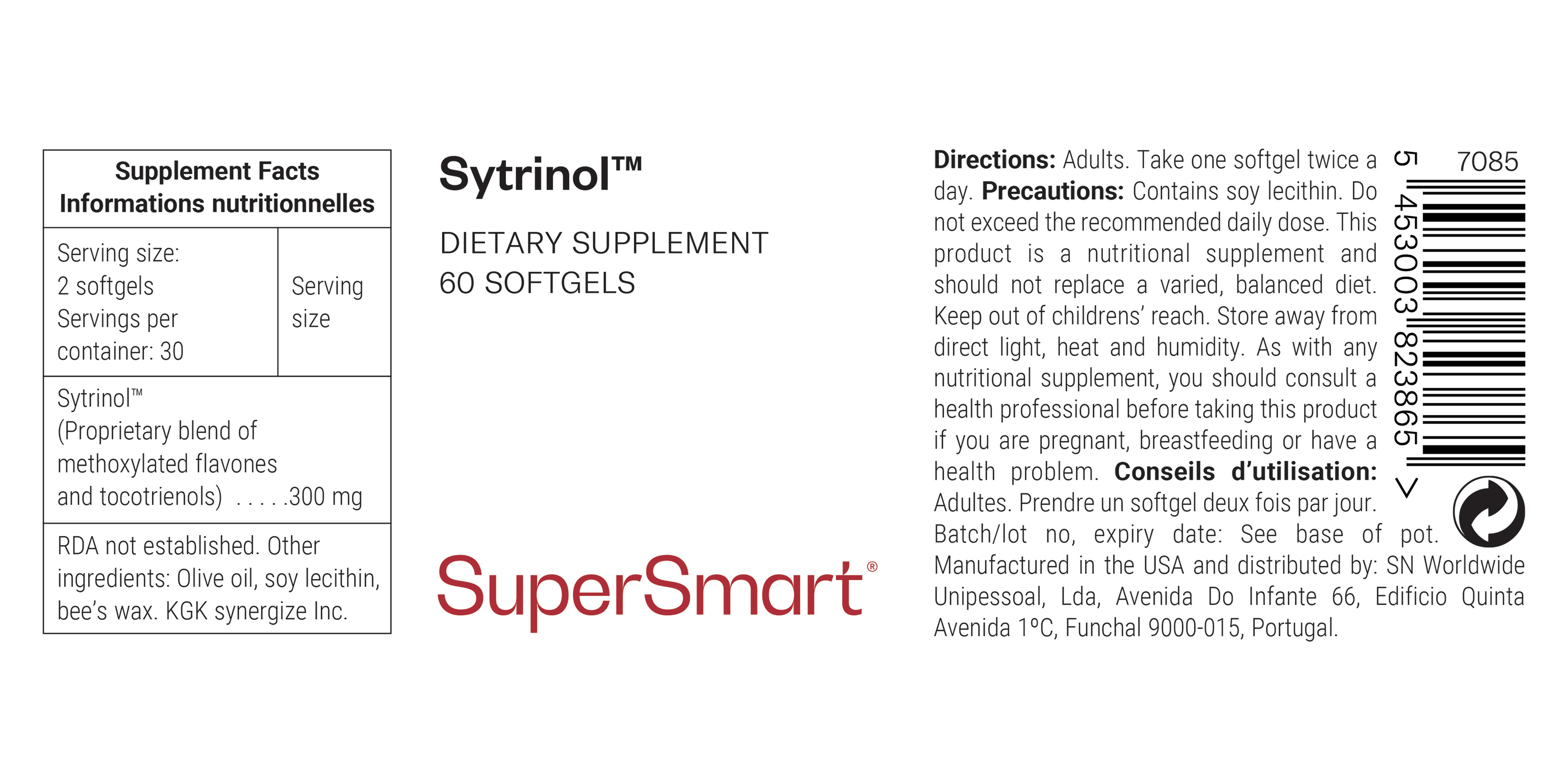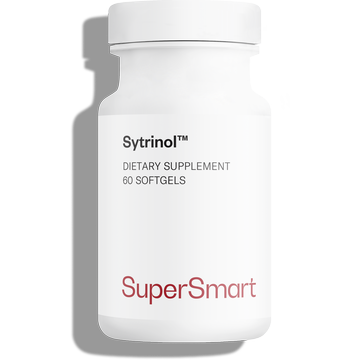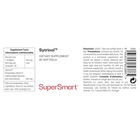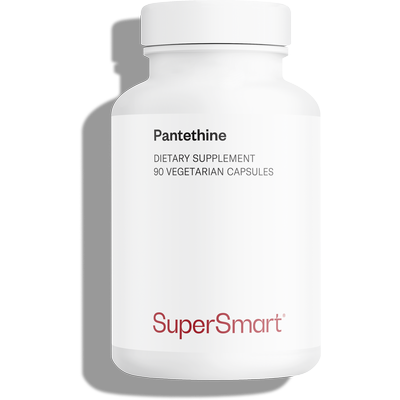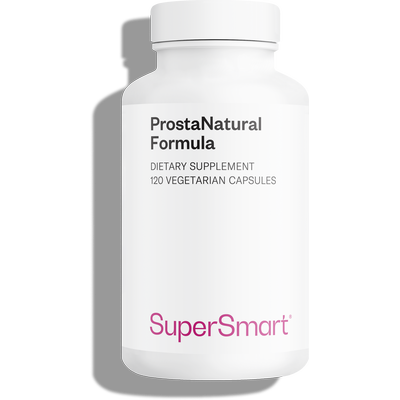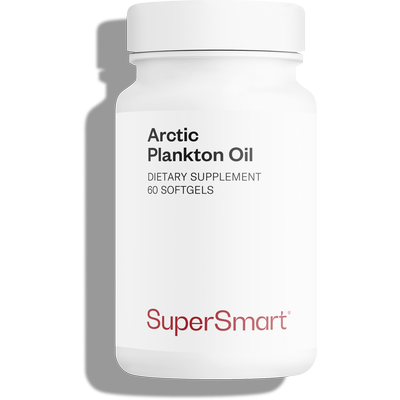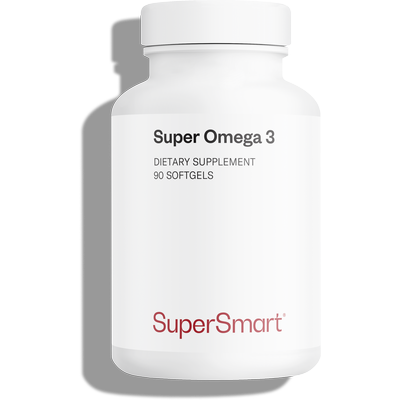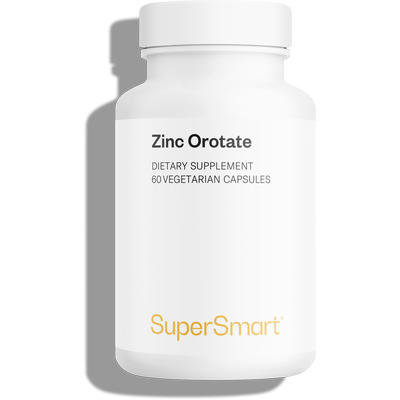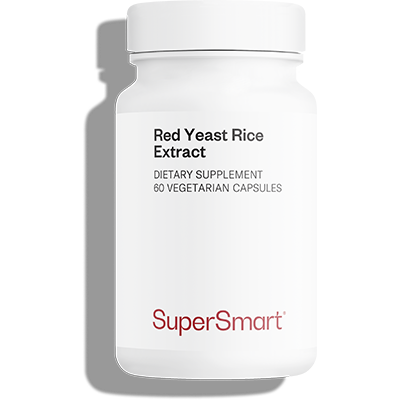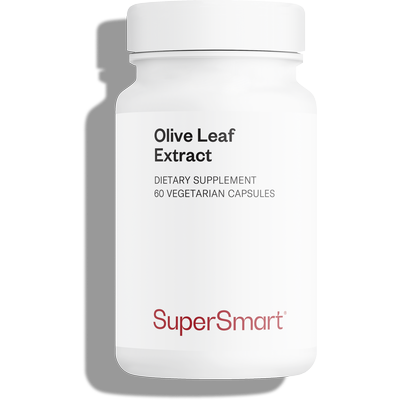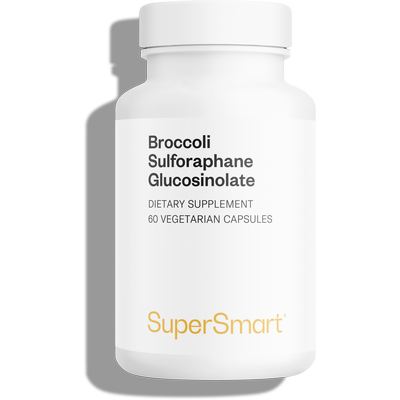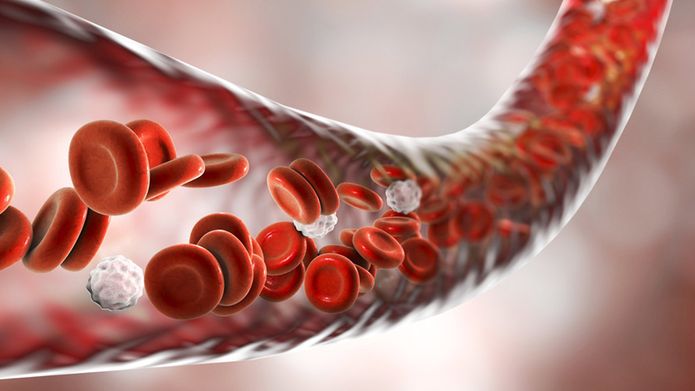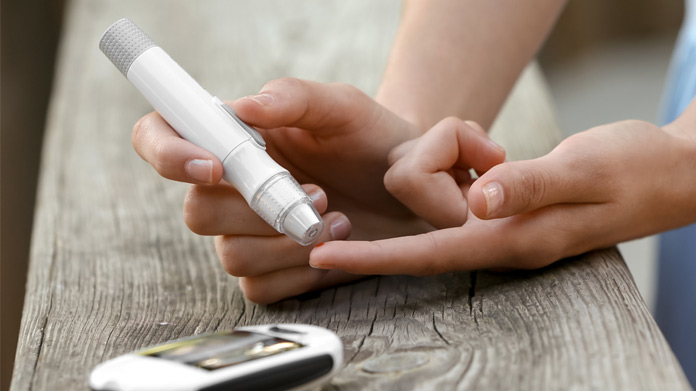Complete your selection
Sytrinol® is a dietary supplement composed of polymethoxylated flavones (PMF) and tocotrienols (vitamin E family). Clinically proven (3 clinical trials) and patented by the laboratory KGK Synergize, it has been developed naturally from oranges (Citrus L sinensis) and palm fruits (Elaeis guineensis), and comes in ultra-absorbable capsules(softgels).
What is hypercholesterolaemia?
Hypercholesterolaemia is one of the main risk factors for cardiovascular disease along with smoking, high blood pressure and diabetes. At excess levels and under pressure from certain factors, LDL-cholesterol, the most atherogenic fraction of cholesterol, accumulates in artery walls, contributing to atheromatous plaque.
We refer to it as hypercholesterolaemia when LDL-cholesterol levels exceed 1.6g/l, which is the case for 30% of the adult populationin the West.
People in this category have a preventable risk of cardiovascular and circulatory diseases (which cause a quarter of all deaths in the UK) : several meta-analyses showed that lowering cholesterol (total or LDL) reduced cardiovascular events as well as mortality risk (cardiovascular and all-cause) (1-2).
Before starting any drug treatment, health professionals normally recommend making appropriate diet and lifestyle changes, possibly combined with natural supplementation for a period of three months. If LDL-cholesterol levels remain too high after this period, lipid-lowering medication can be prescribed.
Why does Sytrinol contain tocotrienols?
The term ‘vitamin E’ actually describes a family of 8 molecules with a similar chemical structure: four tocopherols (alpha, beta, gamma, delta) and four tocotrienols (alpha, beta, gamma, delta). These molecules play a role in protecting blood lipids like cholesterol (3), which are susceptible to being oxidised and going on to form atheromatous plaques.
The ‘tail’ of tocotrienols is always shorter than that of tocopherols, which gives tocotrienols greater mobility and the ability to cover a wider cell membrane surface. That’s why this form of vitamin E has been chosen for Sytrinol. Tocotrienols are fat-soluble compounds which are very well absorbed by the body. Studies have clearly shown that tocotrienols rapidly navigate to organs and tissues higher in adipose content such as the liver, brain, spleen, lungs, kidneys and heart.
What is in Sytrinol™
Any questions?
LDL-cholesterol, which serves as a vehicle for transporting cholesterol, has a tendency to settle in parts of the blood vessel walls under the effect of certain factors (oxidation, glycation or degradation): this is the start of hardening of the arteries. Specialist ‘cleaning up’ cells called macrophages are subsequently deposited, followed by other cells, to the point where they form a fatty plaque which impedes the circulation. But the danger really comes when this plaque ruptures: a piece of the plaque can then block the artery downstream where the blood vessel is narrower, causing a heart attack or stroke.
Hypercholesterolaemia therefore drives hardening of the arteries. The longer you wait to address it, the worse the damage becomes.
Contrary to popular belief, excess LDL-cholesterol does not come from eating too much dietary cholesterol (except in the case of familial hypercholesterolemia), but from endogenous over-production. This is the result of several factors: a diet too high in trans fatty acids or too low in omega-3, diabetes, obesity, ageing, smoking or stress ….
We recommend taking two capsules a day, one with each of your two main meals, as tocotrienols are fat-soluble.
To optimise Sytrinol’s efficacy, it’s a good idea to follow these steps while you are supplementing:
- Significantly increase the proportion of fruits, vegetables, nuts and wholegrains in your diet.
- Use herbs, spices, garlic and onion as much as possible, as they are all rich in antioxidants.
- Restrict your consumption of poultry and red meat, and instead choose fish and seafood wherever possible.
- Take some exercise every day (a walk after a meal, a sports activity…).
- Take a daily multivitamin supplement ( Daily 3 is the gold standard).
- Try other specialist supplements such as Olive Leaf Extract, a triple-action Mediterranean formulation for controlling blood cholesterol and triglycerides, or Red Yeast Rice Extract, a natural alternative to statins.
- Stop smoking as a priority, and learn to manage your stress better if appropriate.
This product’s softgels are of bovine origin. They are particularly suitable for supplements that require rapid solubility. Made from high-quality bovine gelatine, they are safe and effective.
may 1 2023
Quality product
february 28 2021
No further comment
march 7 2020
Excellent does exactly what I wanted and has helped with my chloresterol problem
august 3 2024
Pas médecin ,mais le cholestérol ,est métrisable avec
Not a doctor, but cholesterol is manageable with
 see the translation
Translated by SuperSmart - see the original
see the translation
Translated by SuperSmart - see the original
may 9 2024
Bien que je prenne ce produit en alternance avec la levure de riz rouge, mon taux de cholesterol n’a pas baissé
Although I take this product alternately with red yeast rice, my cholesterol level has not decreased
 see the translation
Translated by SuperSmart - see the original
see the translation
Translated by SuperSmart - see the original

